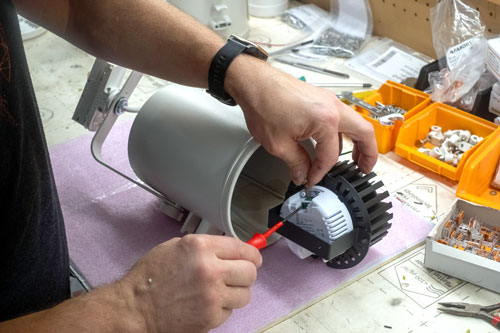Europe’s lighting sector has warned that the EU’s Circular Economy Act will only succeed if key regulatory and market barriers are urgently addressed.
In a joint statement, industry associations including LightingEurope voiced strong support for the Act’s ambitions to build a cleaner, resource-efficient, and competitive European economy.
But they cautioned that the legislation must tackle six persistent problems that continue to hold back circular progress.
The group welcomed the Act’s focus on improving access to quality recyclates, harmonising e-waste rules, and enabling innovative circular business models.
However, they stressed that complex and fragmented regulation remains a critical obstacle. Diverging national rules, overlapping reporting obligations, and double taxation on repaired goods undermine both competitiveness and innovation.
They also highlighted the lack of a true Single Market for secondary materials, calling for harmonised definitions, streamlined shipment procedures, and clear “end-of-waste” criteria to unlock cross-border trade and investment.
Further action is needed, they said, to boost the supply and quality of recycled materials, with targeted investment in collection, processing, and research and development for advanced recycling technologies.
The signatories advocate mandatory EU-wide recyclate quality standards, based on existing EN 50625 and EN 50614 frameworks.
Other priorities include realistic WEEE collection targets that reflect actual product lifespans, and stronger enforcement of existing rules to eliminate free-riders.
The associations warned that without coherent legislation, consistent enforcement, and clear economic incentives, Europe risks missing its circular ambitions. ‘Only by fixing these systemic issues can the Circular Economy Act deliver real environmental and economic value,’ the statement concluded.

